Human Rights Organizations: Widespread Abuse and Police Brutality in Haiti’s Ile a Vache
The struggle between Haiti’s peasants in Ile a Vache and the country’s executive branch is not a simple misunderstanding. The peasants have cared for and forested the offshore island to the extent that it has caught the world’s attention as being the most pristine island in the Caribbean. By contrast, Haiti’s governments have made no effort to provide services as basic as electricity and municipal water to the country’s offshore islands. Nevertheless, the current executive branch presumes that it can merely declare itself to own the island, and this will be so. The peasants say no. This is a very old struggle between a group of people who expect democratic governance and an administration that labels itself democratic because it holds an occasional election but actually rules by decree.
The Martelly-Lamothe regime
To govern by decree, or diktat, is the definition of a dictatorship, and this the Haitian executive branch does with great zeal. On the other hand, to call Haiti’s executive branch a dictatorship would be too kind, given that this administration lacks even a building in which to conduct its affairs and runs its business from hotels. So let us fall back on the ever-convenient term, under which so many unacceptable governments are filed, and call it a regime.
The Martelly-Lamothe regime, run jointly by Haiti’s President Michel Martelly and Prime Minister Laurent Salvador Lamothe, has issued numerous decrees in its enthusiasm to appropriate and liquidate Haitian assets. Nearly all follow the letter of a program that was laid out in 2011 by former United States president Bill Clinton, who serves as Haiti’s de facto colonial governor. The program is buttressed, not only by close US partners France and Canada, but also by the so-called emerging economic powers including Brazil and India. The latter have contributed thousands of their citizens to the UN “peacekeepers” to enforce the undemocratic occupation. Supposedly leftist governments like those of Ecuador, Argentina, Bolivia, Uruguay and Venezuela also eagerly support the regime under the pretext that they would not wish to abandon Haiti to the US.
For this discussion, the most relevant decrees issued by Haiti’s regime were one in 2012 to replace with presidential appointees all the country’s elected mayors, judges, and higher-level regional executives, and another on May 10, 2013 to declare all the country’s offshore islands to be zones of tourism development and public utility.
Dictatorship without nationalism
The decree to appropriate Haiti’s offshore islands came soon after Martelly and Lamothe personally discovered Ile a Vache and developed the habit of going to its two hotels, Abaka Bay Resort and Port Morgan, for their government business dealings. One such deal was in February 2012 with the Venezuelan Ministry of Foreign Affairs, represented by a delegation led by Temir Porras, to help develop villas on Ile a Vache for sale or lease.
By then a project had been drawn up that would appropriate 12 of the islands’ beaches, build an 18-hole golf course, dredge a port in a pristine bay, build an airport through part of a forest, develop a central village with health services, restaurants, bars and cafes for tourists, as well 20 hamlets with villas and hotels that would amount to many thousands of rooms. All this, for the sake of “ecotourism” and without any consultation with 20,000 islanders, many of whom hold rural grants of their properties and farming rights from the State, as well as various leases. Interestingly, it was Francois Duvalier who distributed some 2,500 acres of Ile a Vache lands to the population in 1957 after wresting them from a Senator called Louis Desjoies, who had treated the island as his private fiefdom. Thus this recent move by the Martelly-Lamothe regime to reverse this bit of Duvalierist agrarian reform could be regarded as a sort of Duvalierism with all the dictatorial tactics but none of the resource nationalism.
The islanders were the last to know
A delegation of more than eight human rights groups visited the island on March 11 to 13, 2014 to investigate the situation. They delivered a damning report about the regime’s comportment in Ile a Vache. Specifically, they confirmed that the regime never directly consulted with the population about the development plans, and the people first learned of these plans in September 2013 when a large-scale survey of the island began and the Dominican Company, Ingenieria Estrella S.A, started to bulldoze peasants’ farms to create a 9.3-mile East-West road.
By October, the islanders had organized themselves under the banner Citizen Action for Ile a Vache (ACI). They demanded the details of the development project from Fritz Cesar, the Martelly-decreed Interim Governor of the area. Instead of answering ACI’s questions, Cesar organized for its representatives to meet in November 2013 with Tourism Minister Stephanie Balmir Villedrouin: a meeting that left the ACI members quite angry when she gave them a 10-minute summary of the project after they had traveled all the way to Port-au-Prince to meet with her.
Simultaneously the island’s inhabitants formed other groups to represent themselves, including the Organization of Ile a Vache Farmers (Konbit Peyizan Ilavach, KOPI), which organized major public protests. In the first protest, on December 27, 2013, thousands of people marched to demand clear explanations of the government’s:
- Development plans
- Ongoing construction projects
- Compensation plans for damages done to their homes and farms
The regime explained nothing, despite several additional public protests. The construction work continued until several citizens’ actions in February 2014 blocked the access of heavy machinery to the roads.
Hijacking local government in times of protest
When the regime did respond, it was with decrees to change the local judiciary, chief of police, and police presence on the island. Specifically, a Mr. Nephzer Louis Jean was transferred in February 2014 from another district to Ile a Vache to act as a second local judge; Master Raymond Bergeau was appointed and sworn in as the Commissioner for a newly-created prosecutors’ annex on Ile a Vache, and 40 members of a militarized police called the Departmental Unit for Maintenance of Order (UDMO) were brought in. Later this force was increased to 115 with reinforcements from the Motorized Intervention Brigade (BIM). The former was involved in the La Visite massacre of July 2012, and the latter is renowned for ignoring real police work, including the murder of university professor Serge L. Bernard in August 2012, within their sight.
The BIM corps quickly took to abusing the Ile a Vache population. Based on health records, at least 17 people were violently beaten by police on Ile a Vache in February alone. Eleven of these individuals directly shared their experiences with the human rights delegation. Edmond Edouard and Lethé Freguens were brutally beaten by police for shouting profanities against the regime’s unelected governor who had personally joined the police at a demonstration to single out the organizers for abuse. Other people were ordered by BIM at gunpoint to remove any barricades near their homes. Women and men, including a pastor and founder of a school, were hit with clubs, kicked and stomped on by heavily booted police. Mr. Lethe Freguens says he lost his hearing in one ear from a savage beating. Rosena Macena says she has been hemorrhaging since her beating by police on February 8, 2014.
Jean Matulnes Lamy, a local policeman and leader of KOPI, was arrested and summarily sent to prison on February 25, 2014 without charge or trial after being called to Port-au-Prince for questioning. He is also thought to have been violently beaten during his transfer to prison. Mr. Lamy and his colleagues in KOPI had argued that the development project must be revised to take into account the cultural and social mores of the island’s residents. For example, one of the beaches appropriated for development is the site of traditional annual celebrations by the entire community. Decrees to move fishermen inland and ban fishing with the kinds of nets they traditionally use would destroy their livelihood.
Laziness and distortions of the mainstream
If news of Ile a Vache have managed to reach a large fraction of the Haitian population at home and abroad, this has been entirely because of the alternative press and social media. Reuters, the Canadian Broadcasting Company (CBC), and the British Broadcasting Corporation (BBC) have managed not to find a human-rights report that was leaked to the press in mid-March and published in final form on April 2, 2014. Indeed, they seemed to be incapable of finding the most elementary contact information that anyone could find with a simple Google search. Nevertheless their journalists do eventually find their way to one of the two resorts on Ile a Vache for a weekend story that includes interviews of their hotel’s owner. If they write the same story, it is not because it is true but because they take dictation from the same sources. So far, Le Nouvelliste, Associated Press (AP) and Reuters have parroted each other in suggesting, without basis, that the protests are being instigated by drug dealers, underestimating the Ile a Vache population by 4,000 or more people, and claiming that the development project will create jobs. These arguments have been rebutted elsewhere.
Inclusion of the population or another regime for history’s dustbin?
People continue to block construction in Ile a Vache. They demand: (1) the repeal of the decree to make Ile a Vache a zone for tourism development and public utility; (2) the unconditional release of Jean Matulnes Lamy, and (3) the recall of militarized police presence from the island.
The human rights investigation found no fault with the Ile a Vache population. Its recommendations to the Martelly-Lamothe regime include admonitions to:
- “Respect the Fundamental Rights of the people of Ile à Vache, including their rights to health, education and labor, and the right not to be subjected to cruel, inhuman and degrading treatment.”
- “Explain clearly to the people of the island, the entire project.”
- “Compensate the victims of expropriation and destruction of farms.”
- “[T]ake the necessary measures against officers who have abused the population.”
Though it is highly probable that Martelly-Lamothe regime will wind up, like many others, in the dustbins of Haitian history, there is an infinitesimally small chance that it might distinguish itself by making a success of one national project. One way to do this would be to put aside its greed and natural prejudices against peasants, engage in a dialogue with the Ile a Vache residents, and incorporate their recommendations in the development project.
Editor’s Notes: Photographs one and sixteen by Victoria Hazou for United Nations photos; six, eight, nine, ten to fifteen by Paul van Oss; two and three from The World Bank‘s photo-stream; four from Hugo Chavez‘s photo-stream.
UPDATE #1, December 9 and 12, 2014. Jean Matulnes Lamy, the Vice President of Konbit Peyizan Ilavach (KOPI) appeared before judge Jean Louis Elysee, in Port-au-Prince, Haiti, on Monday, December 8, 2014. Mr. Matulnes Lamy had been imprisoned since February 25, 2014 without charge, for helping to organize protests against the Haitian government’s appropriation of Ile a Vache for its tourism development without consultation with the residents. Counsel Dyliet Jean-Baptiste from the DOP represented Matulnes Lamy, who received a sentence of one month in jail and a fine of 32 gourdes ($0.69). His wife paid the fine, and he should have been immediately released, since he had already served eight months more than his sentence. Instead Matulnes Lamy was returned to prison after Port-au-Prince’s Attorney General, Kerson Darius Charles, who is reputed to be a crony of Prime Minister Laurent Lamothe, refused to sign the release papers. The word is that Kerson Darius Charles plans to appeal Jean Matulnes Lamy’s sentence and try to extend his time in prison, despite the favorable judgement. On Friday, December 12, after Senator Francky Exius of the Southern Department, MP Arnel Belizaire, and former Senator Gabriel Fortune brought some pressure to bear on the government, Jean Matulnes Lamy was finally released from prison.
Related Articles


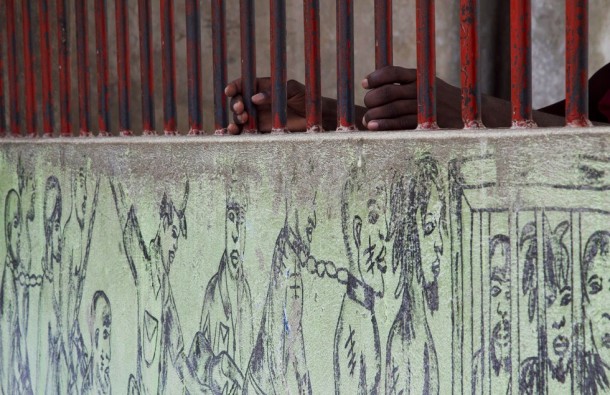
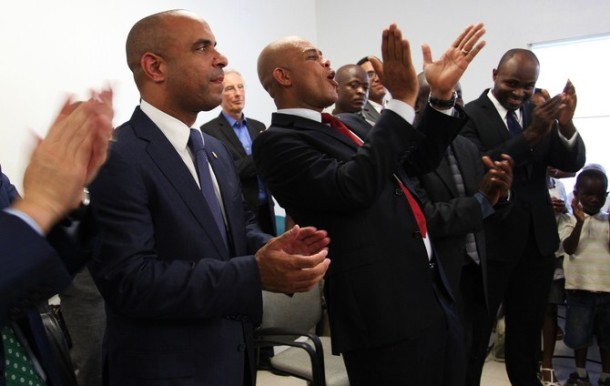
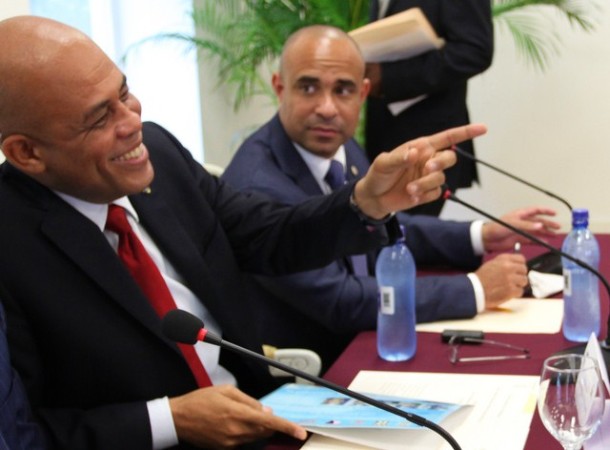
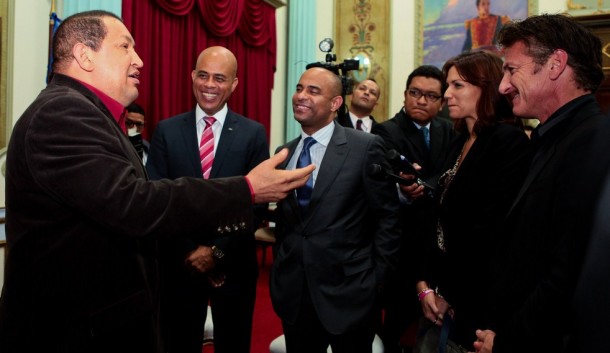
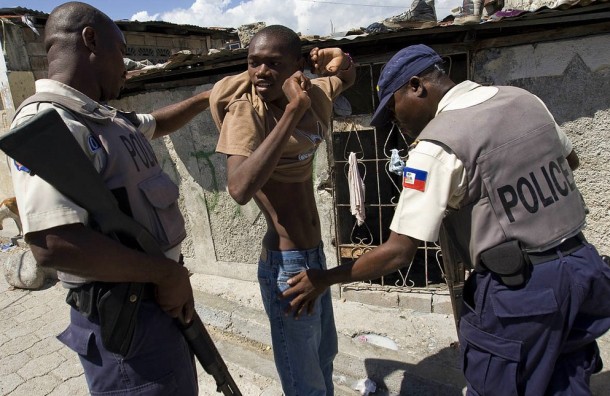
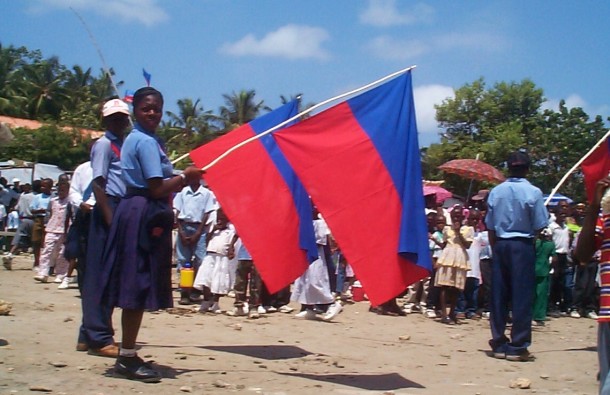
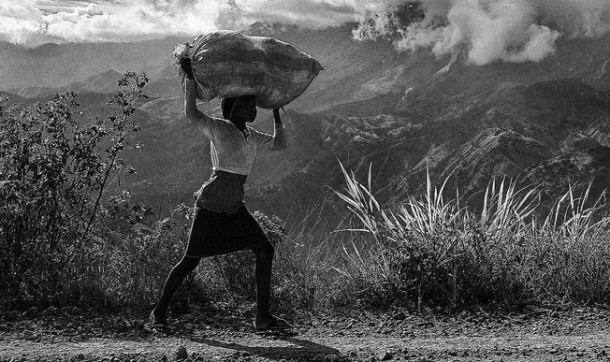
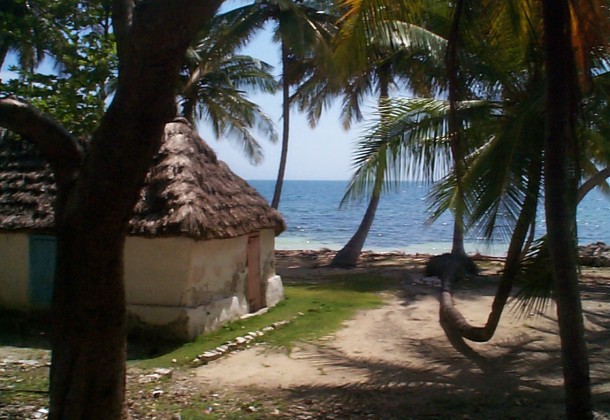
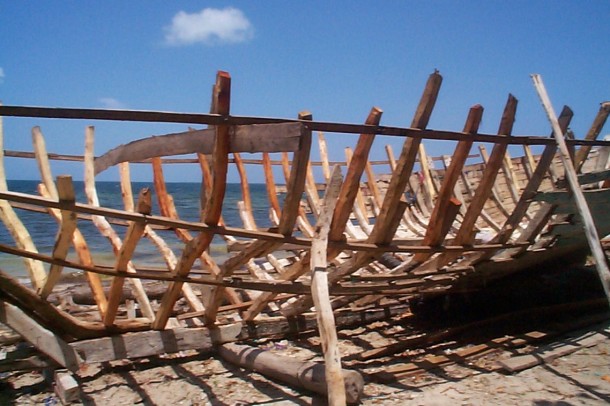
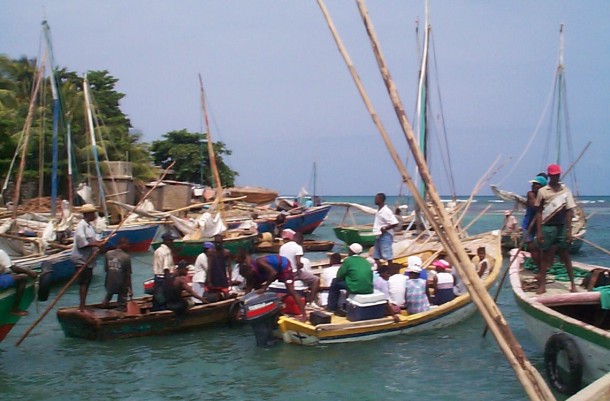
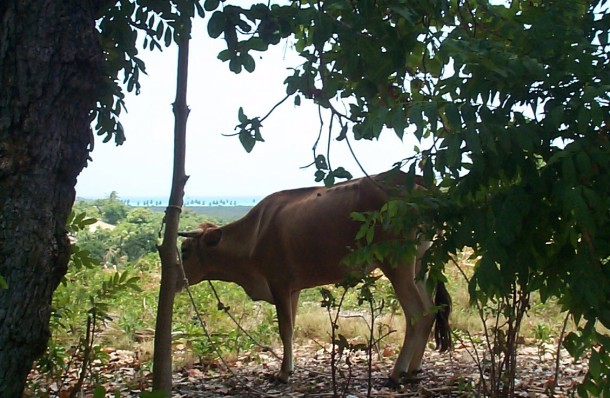
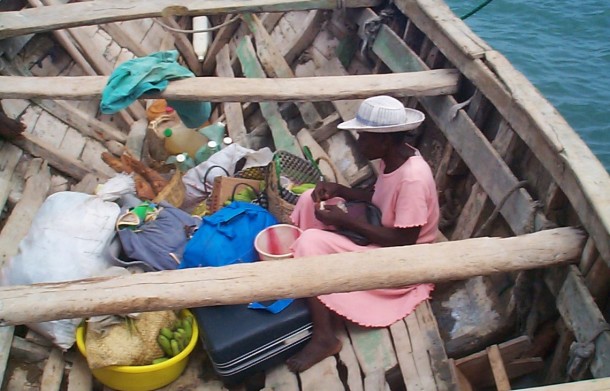
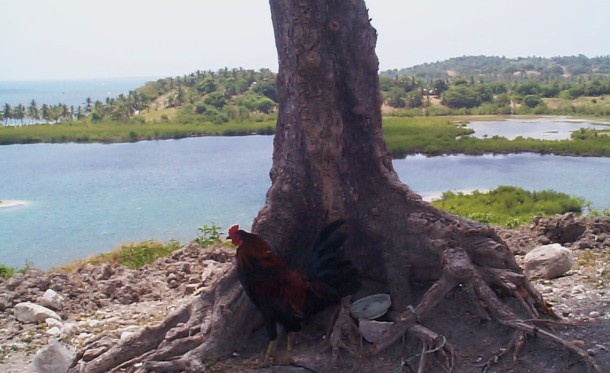
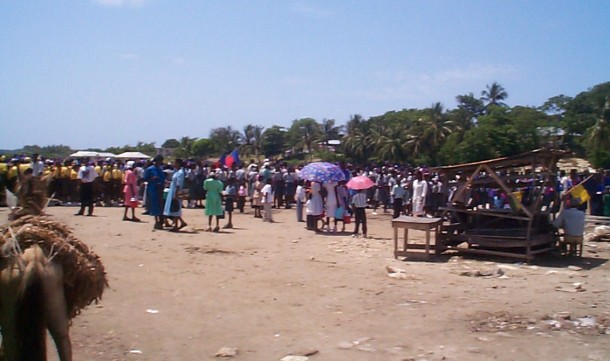
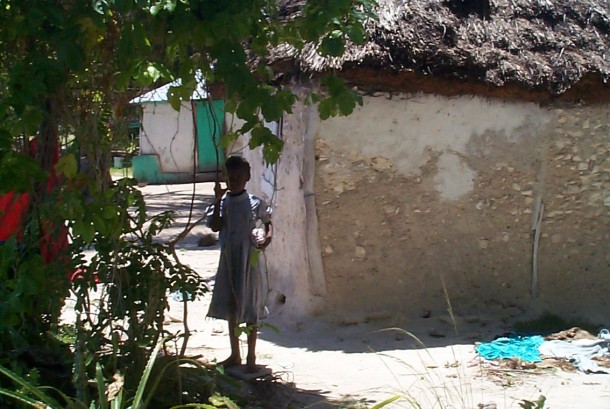
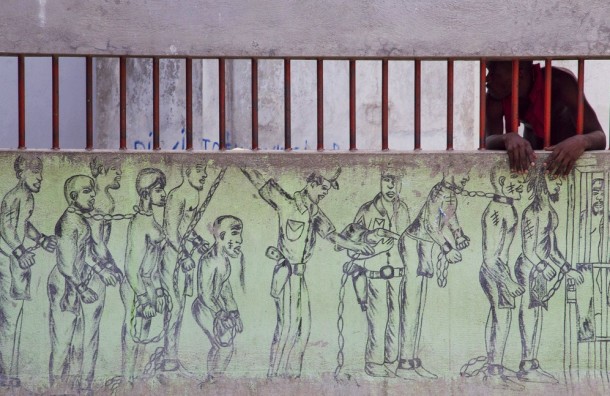











You must be logged in to post a comment Login